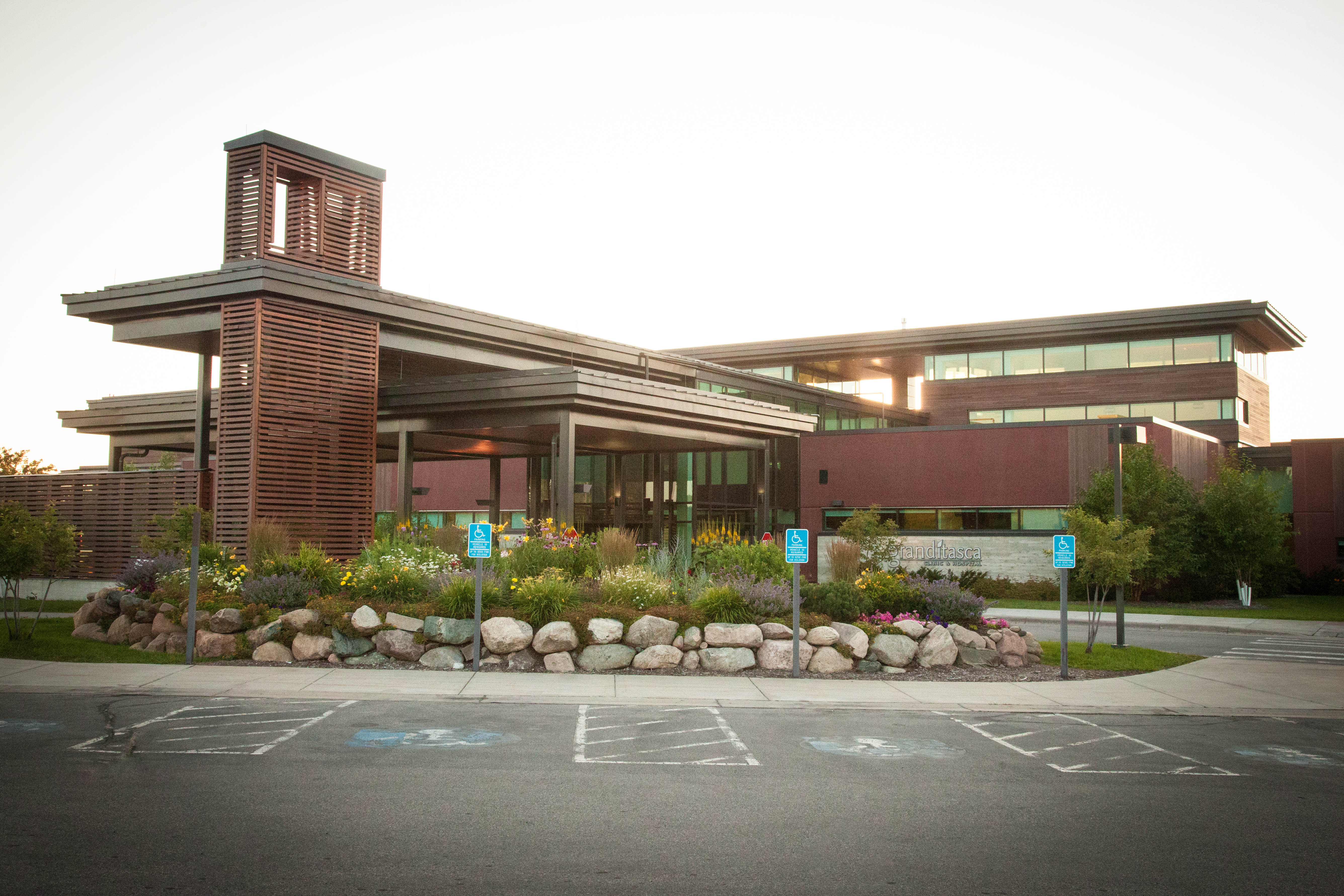
Patient Billing & Financial Services
Grand Itasca offers financial help to patients who cannot pay all or part of their medical bills. You may apply for help through one of our financial assistance programs: Community Care or Senior Partners. These programs cover charges for many of our services.
Grand Itasca also accepts most major medical insurance. If you do not have medical coverage, uninsured discounts may be available to you. Payment plans are also available to patients, regardless of their insurance coverage.
Charity Care
Frequently Asked Questions
Senior Partners
This program is for Minnesota residents with Medicare Part A and Part B. The program helps with Medicate deductibles and coinsurances. To learn more, call 952-767-0665 or visit the website.
Financial Advocates
Grand Itasca's Financial Advocates are available to help you with your Community Care applications and other billing questions. Their offices are located in the main campus clinic lobby and their hours are Monday through Friday 8:00 AM - 4:30 PM.
Grand Itasca's Financial Advocates can also be reached by phone at: 218-999-1036
Pricing Information
The U.S. Department of Health & Human Services and Centers for Medicare & Medicaid Services requires hospitals and health systems to post their “current, standard charges.” Here’s what you need to know about this requirement:
- Hospital charges are the amount a hospital bills an insurer for a service. For most patients, hospitals are reimbursed at a level well below charges. Patients covered by commercial insurance products have negotiated rates with hospitals. Actual payment rates, including for member out-of-pocket costs such as deductibles or co-insurance amounts are based on that negotiated rate, not based on charges.
- Patients covered by Medicare or Medicaid programs have hospital reimbursement rates determined by federal and state governments, not based on the hospital’s charges.
- Uninsured patients may be covered either by our Charity Care or Uninsured Discount policies. For specific information, please contact us at 218-999-1710.
- Hospital charges may include bundled procedures, personnel, services and supplies. An example would be room rates that include the space, equipment, nursing personnel and supplies.
- Medication prices show the price for the entire package that the pharmacy purchased and may not reflect the price of the dose an individual patient receives.
- Gross charge (a.k.a. "list prices") and negotiated rare information is available here: Excel
Minnesota State Law also requires clinics and health systems to post charges for common clinic services and the average reimbursement received from commercial and government payers.
- You may view the required clinic charge and payment information here: PDF
- The disclosure of clinic pricing information is meant to be informative ― the actual amount a patient may owe out of pocket is based on the individual’s insurance.
As a patient, when you have the opportunity to shop for medical services, you should contact your insurance carrier to understand which costs will be covered and which will be your responsibility.
- Want more information? Contact us at 218-999-1710.
Prior Authorization
Prior authorization is a process used by health insurance companies to determine whether they will cover a specific high-cost medication, treatment, or procedure before you receive it. Your doctor or health care provider submits a request to the insurance company, providing information about why the treatment is medically necessary for your condition.
Frequently Asked Questions
- Your doctor recommends and prescribes a treatment or medication that may require prior authorization.
- The pharmacy informs your provider’s care team that prior authorization is needed.
- Your provider’s care team submits a request to your insurance company, including details on why the treatment is needed.
- The insurance company reviews the request to ensure the treatment is covered under your plan and meets their guidelines.
- The insurance company approves or denies the request. If approved, you can proceed with the treatment, knowing it's covered. If denied, your doctor may appeal the decision or suggest alternatives.
- The insurance company communicates their decision to the pharmacy.
The prior authorization process can take one week to be processed and submitted, and then 10-14 days to be approved or denied by your insurance company and be completed.
If a prior authorization is denied, the patient or provider may be able to appeal the decision. This process helps ensure that you receive the most appropriate care and that your insurance plan is used efficiently. Prior auth is often used for high-cost medications, specialized treatments, or certain procedures.